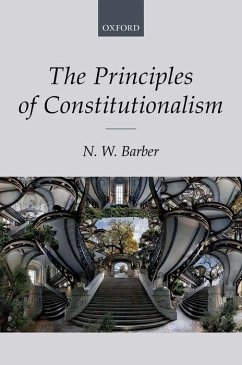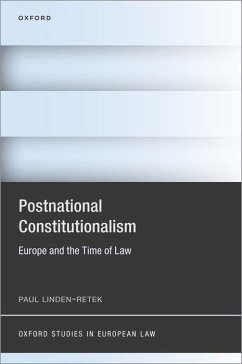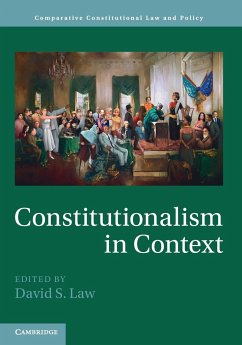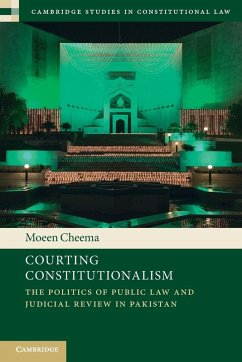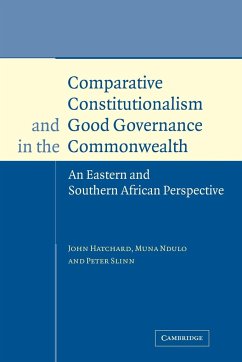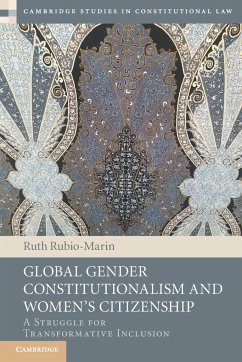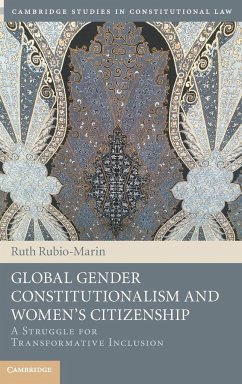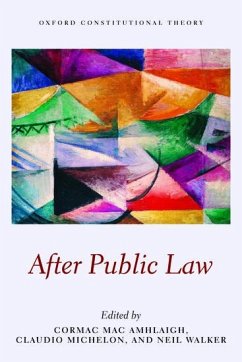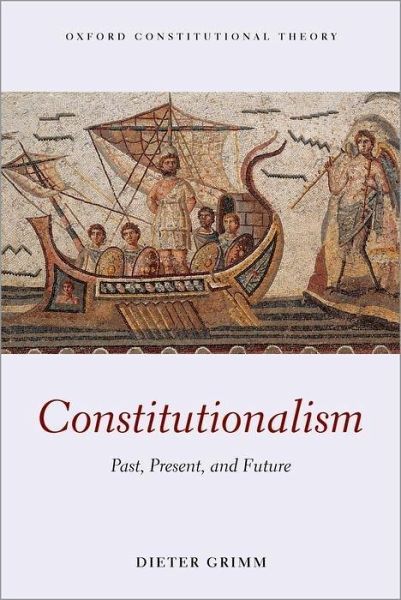
Dieter Grimm (Professor of Law and former Justice Federal Constitut
Broschiertes Buch
Constitutionalism
Past, Present, and Future
Versandkostenfrei!
Versandfertig in 1-2 Wochen

PAYBACK Punkte
26 °P sammeln!




The authoritative collection of Dieter Grimm's influential essays on modern constitutionalism.
Dieter Grimm teaches constitutional law at Humboldt University Berlin and the Yale Law School. From 1987-1999 he served as Justice of the Federal Constitutional Court of Germany. From 2001-2007 he was the Director of the Wissenschaftskolleg zu Berlin (Institute for Advanced Study) whose Permanent Fellow he continues to be. He was Visiting Professor at Harvard, New York University, Toronto, Rome, Kolkata, Seoul, Beijing, Shanghai and a Fellow of the Stellenbosch Institute for Advanced Study in South Africa. He is a member of the Berlin-Brandenburgische Akademie der Wissenschaften, the Academia Europaea and the American Academy of Arts and Sciences. He holds honorary doctoral degrees from the universities of Toronto, Göttingen, Porto Alegre, and Bucarest. He has widely published on matters of constitutional law, constitutional history, constitutional theory, comparative constitutionalism, and European Union law.
Produktdetails
- Oxford Constitutional Theory
- Verlag: Oxford University Press
- Seitenzahl: 392
- Erscheinungstermin: 14. Mai 2019
- Englisch
- Abmessung: 234mm x 156mm x 21mm
- Gewicht: 600g
- ISBN-13: 9780198840497
- ISBN-10: 0198840497
- Artikelnr.: 55451991
Herstellerkennzeichnung
Libri GmbH
Europaallee 1
36244 Bad Hersfeld
gpsr@libri.de
Für dieses Produkt wurde noch keine Bewertung abgegeben. Wir würden uns sehr freuen, wenn du die erste Bewertung schreibst!
Eine Bewertung schreiben
Eine Bewertung schreiben
Andere Kunden interessierten sich für


